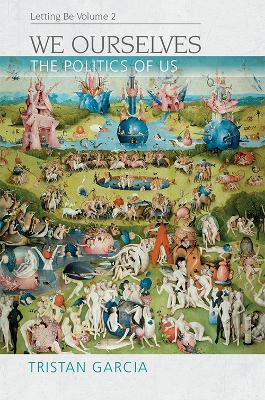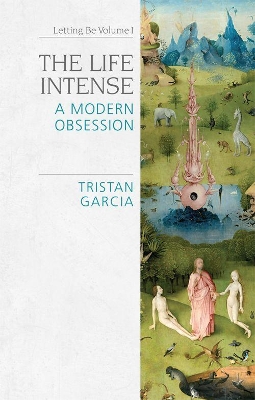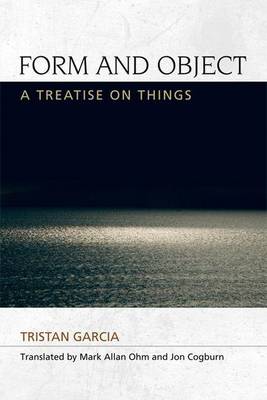Speculative Realism
3 total works
Throughout the history of human societies, the question of 'we' has always entailed the question of 'us and them', the reconciliation of which can either give birth to or mark the end of a politics. Tristan Garcia's radical historicisation of the ways we have imagined ourselves is more than a commentary on the dynamics of representation in a given society. This work is a rigorous engagement with the history of humanity's attempts at being collectively. For fans of The Life Intense, the first volume in the Letting Be series, We Ourselves is the next step in the development of Garcia's thought, but for those who have not read it, it also stands alone. Garcia provides a methodological framework that critically reinvigorates our dreams of the society to come and clears the way for the return to ontology in Letting Be III.
Our lives today are oppressed by the demand that we live, feel and experience with ever greater intensity. We are enticed to try exotic flavors and smells; urged to enjoy a wide range of sexual experiences; pushed to engage in extreme sports and recreational drugs - all in the pursuit of some new, unheard-of intensity.
Tristan Garcia argues that such intensity rarely lives up to its promise. It always comes at a price: one that defines the ethical predicament of contemporary life.
The notion of intensity was the hidden key to Garcia's landmark book Form and Object. In The Life Intense, the first part of his ambitious Letting Be trilogy, he begins to develop it in detail. This first book focuses on ethics; the forthcoming volumes will be devoted to politics and then metaphysics.
Garcia's original and systematic formal ontology of things strips them of any determination, intensity or depth. From this radical ontological poverty, he develops encyclopaedic regional ontologies of objects. By covering topics as diverse as the universe, events, time, the living, animals, human beings, representation, arts and rules, culture, history, political economy, values, classes, genders, ages of life and death, he shows that speculative metaphysics and ontology are alive and well.


